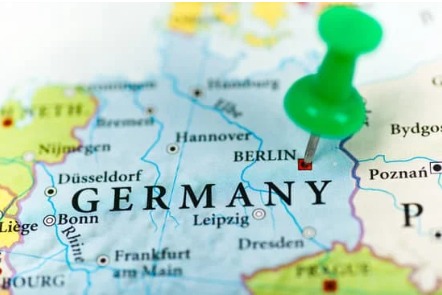Germany did not have enough skilled workers in 2025. This creates job opportunities for foreign workers in different industries. As the economy grows, more experienced workers are needed, especially in IT, healthcare, engineering, and construction. These jobs are important to help industries grow and improve.
Germany has different work visas to help bring in foreign workers. A work visa lets you live and work in the country legally. It also gives you a stable job and good career opportunities. Germany needs skilled workers, so it is easier for qualified people to get jobs. This article explains the steps to apply for a German work visa.
Verify Eligibility for a Skilled Worker Visa
To get a German skilled worker visa, you must meet certain government requirements. These rules make sure foreign workers have the right skills and qualifications to help the country’s workforce.
Recognized Qualifications
Germany requires skilled workers to have a recognized degree or certification in their field. Applicants must check if their qualifications match German standards. They can do this by using the Anabin database or applying for official recognition through agencies like the Central Office for Foreign Education (ZAB) or IHK FOSA for vocational certificates.
Work Experience Requirement
Most applicants need at least 24 months of work experience in their field. This ensures they have practical skills. Some jobs, like healthcare, may require extra training or exams to qualify.
Employment Offer or Job-Seeking Options
A confirmed job offer from a German employer strengthens a skilled worker visa application. The employment contract must match your qualifications and meet any required minimum salary.
You can apply for the Chancenkarte (Opportunity Card) if you don’t have a job offer. This allows skilled workers to enter Germany and look for a job within a set time. Points are given based on qualifications, work experience, language skills, and age, making it easier to find work.
Language Proficiency Requirements
Many technical and IT jobs don’t need German skills, but some fields like healthcare, education, and customer service do. These jobs usually require basic to intermediate German (A2–B1 level). Having a recognized language certificate, like from the Goethe Institute, can help you find a job and adjust to the workplace more easily.
Get Foreign Qualifications Recognized
Foreign workers must check if their qualifications meet German standards before applying for jobs or a work visa. Germany requires official approval of degrees, diplomas, and certifications to ensure they match local standards. This step is important for getting a job, a work visa, and working in regulated fields like healthcare and engineering.
Checking Qualification Recognition via Anabin
The Anabin database is the main tool to check if a foreign degree or diploma is recognized in Germany. Applicants should search the database by their institution’s name and qualification title to find out if it’s accepted.
- H+ (recognized) – The qualification is fully recognized.
- H- (not recognized) – The qualification does not meet German standards.
- H+/- (case-by-case evaluation required) – Additional assessment is necessary.
If a qualification is listed as H- or H+/-, applicants must apply for formal recognition.
Formal Recognition Process
For academic degrees, applicants must apply through the Central Office for Foreign Education (ZAB). This office checks foreign qualifications and provides a Statement of Comparability, which confirms if the degree matches German standards.
For vocational or professional certifications, IHK FOSA (Foreign Skills Approval Office) handles recognition. They check if an applicant’s training and experience meet German industry standards.
Additional Requirements for Regulated Professions
Some jobs, like healthcare, law, teaching, and engineering, are regulated in Germany. This means foreign qualifications must meet specific licensing or accreditation rules. Professionals in these fields may need to:
- Pass additional exams or competency assessments.
- Complete practical training or internships.
- Provide proof of German language proficiency at a required level (e.g., B2 for healthcare).
Search for High-Demand Jobs in Germany
Germany has a growing labor shortage in many industries, increasing the need for skilled foreign workers. Getting a job is important for a work visa. Job seekers should first find industries with high demand and use trusted job search platforms to find the right positions.
Sectors with the Highest Demand for Foreign Workers
Several industries in Germany seek skilled professionals from abroad. The most in-demand sectors include:
- Information Technology (IT) – Software development, cybersecurity, and data science.
- Healthcare – Doctors, nurses, and elderly care specialists.
- Engineering – Mechanical, electrical, and civil engineers.
- Construction – Skilled laborers, project managers, and architects.
Job Portals and Resources
Applicants can search for job openings through official government platforms, industry-specific job boards, and international employment websites. Essential resources include:
- Make It in Germany – Germany’s official portal for foreign workers.
- Federal Employment Agency – Germany’s national job database.
- LinkedIn – Professional networking and job listings.
- Indeed Germany – One of the largest job portals in Germany.
Job Seeker Visa and Chancenkarte for Those Without a Job Offer
If an applicant does not have an employment offer, Germany provides alternative pathways:
- Job Seeker Visa – Allows qualified professionals to stay in Germany for up to six months while searching for a job.
- Chancenkarte (Opportunity Card) – A new points-based system that grants entry to job seekers based on qualifications, experience, language skills, and age.
Apply for a German Skilled Worker Visa
After getting a job offer in Germany, the next step is to apply for a skilled worker visa. This visa lets non-EU workers live and work in Germany legally. The process includes collecting required documents, meeting the eligibility criteria, and exploring fast-track options like the EU Blue Card for high earners.
Required Documents for a Skilled Worker Visa
Applicants must submit the following documents when applying for a German skilled worker visa:
- Valid passport
- Employment contract
- Recognized qualifications
- Health insurance
- Proof of financial stability
Additional documents may be required depending on the specific job and visa type.
The Visa Application Process
The visa application process typically follows these steps:
- Schedule an appointment
- Submit documents
- Attend an interview
- Await processing
- Receive visa approval
Obtain a Residence and Work Permit
After arriving in Germany and registering their address, foreign workers must apply for a residence and work permit. The Foreigner’s Office (Ausländerbehörde) issues this permit, which is required for long-term employment. To obtain a residence permit, applicants must visit the Foreigners’ Office in their city and submit the following documents:
- Valid passport
- Skilled worker visa
- Employment contract or job confirmation letter
- Proof of residence (registration certificate from the Bürgeramt)
- Health insurance confirmation
- Proof of financial stability (salary statements or job contract)
Applicants may need to attend an interview to confirm their job role, salary, and long-term employment plans. Processing times vary by location but typically take several weeks.
Duration and Renewal of the Residence Permit
The skilled worker residence permit is usually valid for four years or the length of the work contract. Workers can apply for renewal before it expires if they keep working in Germany with the same or a new employer. To renew, they must submit updated job and residence documents.
Frequently Asked Questions (FAQs)
Where Can I Find Jobs in Germany?
Use platforms like Make It in Germany, the Federal Employment Agency, LinkedIn, and Indeed.de.
Do I Need to Speak German to Work in Germany?
Not always, but learning German improves job prospects, salary potential, and integration.
How do I Check if My Qualifications are Recognized in Germany?
Use the Anabin database or apply for formal recognition through ZAB or IHK FOSA.
Conclusion
Starting early and using helpful tools like job websites, visa guides, and language programs can make the process easier. Germany welcomes skilled workers and offers different ways to apply, like the Chancenkarte and EU Blue Card.






